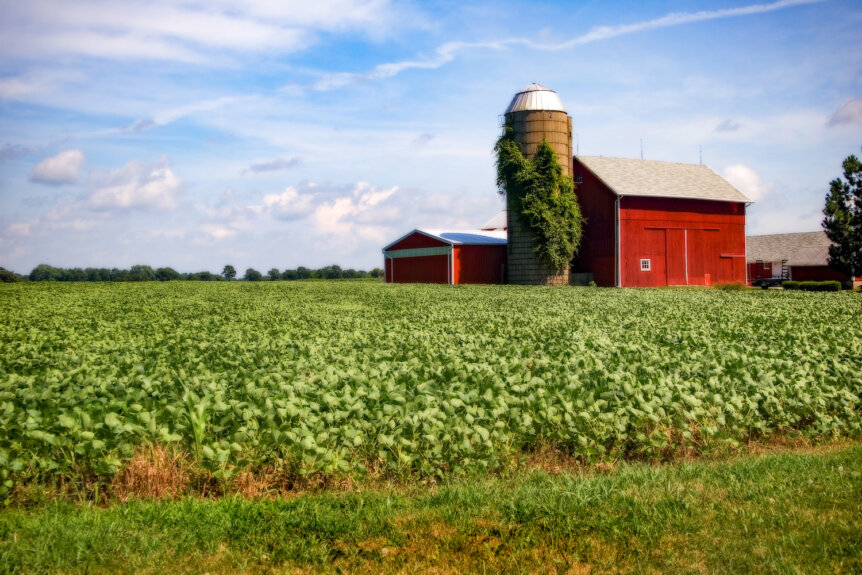Buying or selling farmland in Illinois is a significant financial and legal process. Whether you’re a farmer expanding your operation, an investor looking for agricultural property, or a landowner selling your family farm, understanding the closing process is essential. A successful farmland transaction requires careful planning, legal knowledge, and financial preparation. In this blog, we will share how to buy or sell farmland in Illinois and what the closing process is.
At Rincker Law PLLC, we assist buyers and sellers in Springfield, Peoria, Bloomington, Decatur, Champaign, Shelbyville, Mattoon, Effingham, Sullivan, and other Central Illinois towns to ensure smooth and legally sound farmland transactions.
Step 1: Preparing for the Sale or Purchase
Before diving into the closing process, both buyers and sellers should take essential preparatory steps:
For Sellers:
- Obtain a Land Survey – Clearly define the property boundaries to prevent disputes.
- Check for Existing Leases – If the land is leased to a farmer, confirm the lease terms and provide disclosures.
- Gather Legal Documents – Titles, deeds, tax records, and any existing agreements must be reviewed.
- Resolve Liens or Debts – Ensure any outstanding debts tied to the land are addressed before closing.
For Buyers:
- Secure Financing – If taking out a loan, get pre-approved for a farmland mortgage.
- Conduct Due Diligence – Research zoning laws, soil quality, drainage, and any environmental restrictions.
- Review Easements – Determine if there are any public or private easements affecting land use.
- Check Government Programs – If the land is enrolled in government conservation or subsidy programs, understand the obligations.
Step 2: Negotiating the Purchase Agreement
Once the buyer and seller are ready, they must negotiate and sign a Purchase Agreement that outlines:
- Agreed purchase price and payment terms
- Any included equipment, structures, or water rights
- Contingencies (such as financing or inspections)
- Closing date and conditions
- Responsibilities for property taxes and fees
A well-drafted purchase agreement protects both parties and prevents misunderstandings later in the process.
Step 3: Conducting a Title Search & Addressing Legal Issues
Before closing, the buyer’s attorney or title company will conduct a title search to ensure there are no legal claims, liens, or disputes over the property. Common issues that need to be resolved include:
- Unpaid Property Taxes – Past due taxes must be settled before closing.
- Boundary Disputes – Land surveys help clarify property lines.
- Easements & Rights-of-Way – The buyer must be aware of any third-party land-use rights.
- Encumbrances – Any liens, mortgages, or legal claims must be cleared before the title is transferred.
Once all issues are resolved, the buyer will receive title insurance to protect against future legal claims.
Step 4: Financing & Closing Costs
Most buyers finance farmland purchases through agricultural lenders, local banks, or farm credit institutions. It’s crucial to understand the closing costs, which may include:
- Title Insurance Fees
- Loan Origination Fees
- Survey Costs
- Attorney Fees
- Recording Fees & Transfer Taxes
Both parties should work closely with a real estate attorney to ensure all financial obligations are clear before closing.
Step 5: Closing the Sale
The closing process involves finalizing the legal and financial transfer of ownership. This includes:
- Reviewing and Signing Closing Documents – The buyer and seller sign the deed, title transfer, and financing agreements.
- Funds Transfer – The buyer pays the seller, either through a direct transfer or a mortgage lender.
- Recording the Deed – The new ownership is officially recorded with the Illinois county clerk.
- Possession Transfer – The buyer takes ownership, and any agreed-upon possession terms (such as crop removal or lease transitions) are fulfilled.
Common Challenges in Farmland Transactions
While the process may seem straightforward, buyers and sellers should be prepared for common obstacles:
- Zoning or Land Use Restrictions – Not all farmland can be developed or repurposed easily.
- Environmental Compliance – Wetlands, protected species, or hazardous materials can complicate sales.
- Appraisal Issues – Loan approvals depend on accurate property valuation.
- Disagreements on Mineral or Water Rights – Some properties include resource rights that must be clearly defined.
Having an experienced Illinois farmland attorney can help navigate these complexities and ensure a smooth transaction.
Why Work with Rincker Law PLLC for Your Farm Real Estate Closing?
At Rincker Law PLLC, we specialize in Illinois farmland sales and purchases and can guide you through every legal and financial aspect of the transaction. Our team ensures that contracts are fair, titles are clear, and closings are seamless.
If you’re buying or selling farmland in Springfield, Peoria, Bloomington, Decatur, Champaign, Shelbyville, Mattoon, Effingham, Sullivan, or other Central Illinois towns, call us at (217) 774-1373 for expert legal assistance.
Let us help you close your farmland deal with confidence and peace of mind!

